Flag Day. National Bourbon Day. World Blood Donor Day. Monkey Around Day? These are some of the potential ways to mark June 14, the 165th day of 2022. What you choose today is up to you, but I do hope you’ll take a look or a listen at this installment of Charlottesville Community Engagement, a program that also wants you to make sure you know that some consider this is also National Pop Goes The Weasel Day. Now, where can I find some tupenny rice and some treacle?
On today’s program:
Details on the next steps for a second lawsuit to force a House of Delegates election this year
Albemarle and Charlottesville’s elected bodies each take a look at the Regional Transit Vision plans
Governor Youngkin announces a series of grants to help increase capacity fo small agricultural producers, such as a water-powered mill in Nelson County
And Albemarle County releases a report on climate vulnerability and risks
Today’s first shout-out: ACHS to provide update on Race and Sports project
In today’s first subscriber supported public service announcement, the Albemarle Charlottesville Historical Society continues work gathering stories for their project Race and Sports: Athletics and Desegregation in Central Virginia. Tonight at 7 p.m. they will provide an update on Facebook Live and Zoom with two people who lived through the era. Garwin DeBerry graduated from Burley High School in 1965 and Steve Runkle graduated from Lane High School in 1960. They will be sharing how the families, neighborhoods, and communities in which they grew up shaped their experiences and of school desegregation. Tune in to the ACHS event on Race and Sports tonight at 7 p.m. (Zoom registration)
Status hearing held for new lawsuit seeking House of Delegates election this November
The state of Virginia has until June 24 to file a motion to dismiss a new lawsuit that seeks the Commonwealth to hold an election for the House of Delegates this year. Richmond resident Jeffrey Thomas Jr. filed a federal suit in the Eastern District of Virginia last week that picks up similar arguments made by Richmond attorney Paul Goldman for why some think the House districts currently in place are unconstitutional. Goldman’s suit was dismissed for lack of standing nearly a year after he filed.
Thomas and representatives from the Virginia Attorney General’s office were in court yesterday for a status update in the case. Judge David Novak issued an order requiring both parties to file a joint stipulation of facts by June 17.
Thomas will have eight days to respond to whatever the state of Virginia files. The state will have five days to respond. No date has been set for another hearing. For more information, read coverage in the Virginia Mercury.
Albemarle County releases climate vulnerability assessment
One item on tomorrow’s agenda for the Albemarle Board of Supervisors is a 176-page document that identifies how the county and its residents will be affected by shifting weather patterns. The Climate Vulnerability and Risk Assessment looks ahead to how extreme heat, drought, wildfires, and flooding may affect the area. There’s also the threat a changing climate will bring new pests that will affect crops. (read the document)
The assessment is a step toward developing a climate resilience plan.
“Some of the changes are unavoidable and even while we try to mitigate and reduce the severity of climate change, we also need to prepare for some of those impacts,” said Gabe Dayley, Albemarle’s climate protection coordinator.
Dayley said the climate action plan is intended to reduce greenhouse gas emissions to meet regional goals to be carbon neutral and fossil free by 2050. He made his comments on the Let’s Talk podcast produced by Albemarle’s communications and public engagement department.
“Our vulnerability and risk assessment looks at the kinds of specific local weather changes that we can expect,” Dayley said. “Things like increasingly intense and long heat waves or sudden and more severe rainstorms that lead to flash flooding.”
Visit the county’s website to hear more.
The report was put together with support and work from the Piedmont Environmental Council. In disclosure, that group is a sponsor of the Week Ahead newsletter.
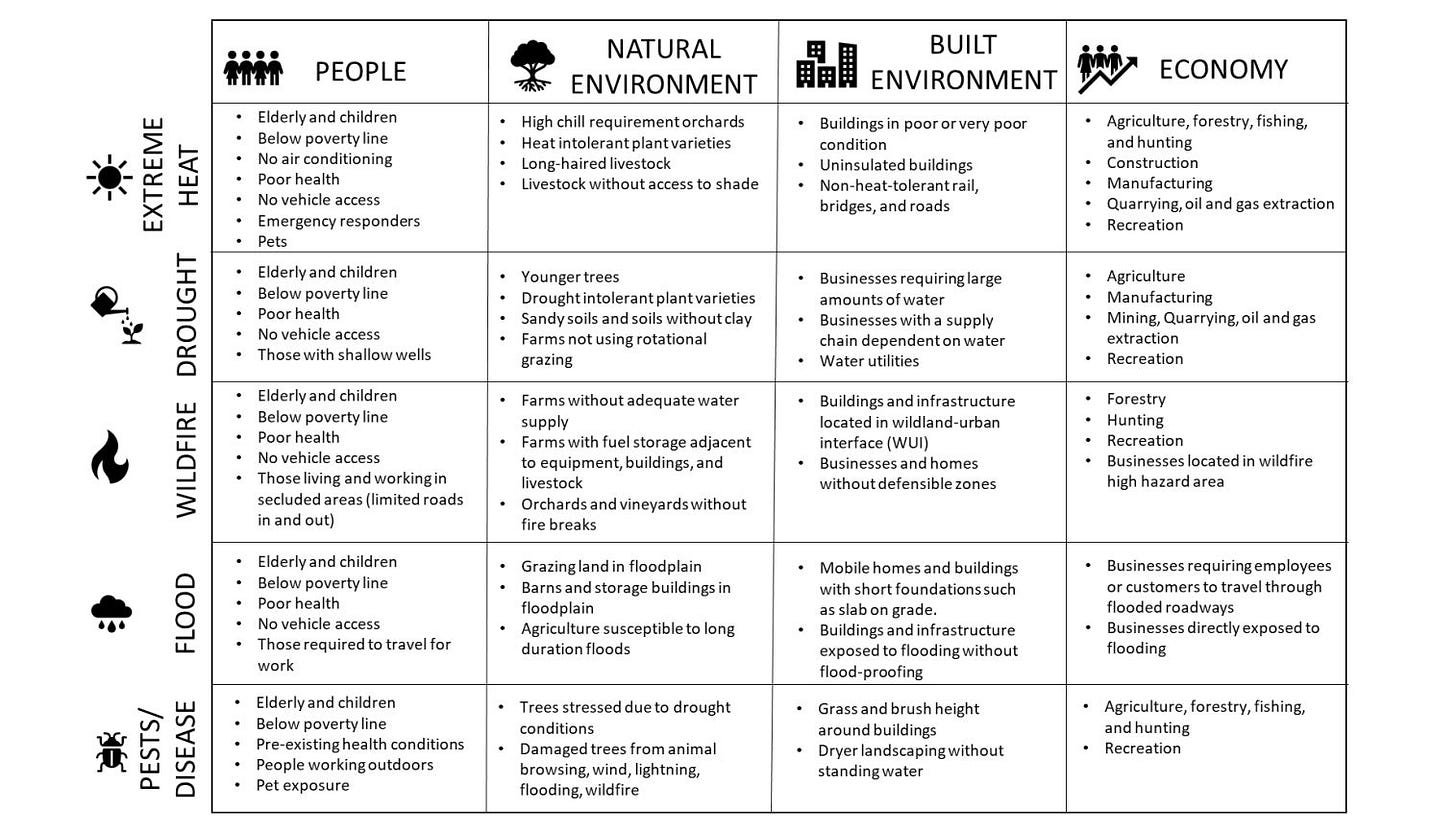
Water-powered grain mill in Nelson gets support from AFID grant
This is Ag Week in Virginia, and Governor Glenn Youngkin has announced the latest recipients of the state Agriculture and Forestry Industry Development grant program. The program provides matching grants to small agricultural producers such as Potter’s Craft Cider which used a $50,000 grant as part of a package to move operations into Neve Hall off of U.S. 29 in 2019.
This time around the grants focus on infrastructure. Nelson County requested financial assistance for Deep Roots Milling to upgrade a water-powered grain mill built in the late 18th century. According to the press release, the $22,500 in state funds will help pay for a new sifting room and new bagging equipment.
Other recipients include $25,000 for Piedmont Processing of Gordonsville in Orange County to add more cooling space for its slaughterhouse, $25,000 for barge to serve a collective of oyster farms in Northampton County, and $9,000 for a commercial kitchen expansion in Bedford County. Read the press release for more information.
Today’s second goes to WTJU and the Radio Relics project
In today’s second Patreon-fueled shout-out: This year, WTJU 91.1 FM turns 65 and to mark the occasion, there’s a new micro-museum exhibition this summer!
Radio Relics traces WTJU’s storied history of broadcasting for our community. As part of our 65th anniversary celebrations, WTJU has curated photos, artifacts, and t-shirts – so many t-shirts! – spanning more than six decades.
The exhibition is free and will be open Monday-Friday, 10 a.m. to 5 p.m. from June 3 through July 29. The museum space is a renovated, vintage camper parked behind WTJU’s studios at 2244 Ivy Road in Charlottesville. WTJU’s Radio Relics exhibition shows off some of the artifacts collected over the years, many contributed by former WTJU General Manager Chuck Taylor. In fact, there’s even a new initiative to raise money through the Chuck Taylor Fund for WTJU History. Contact General Manager Nathan Moore to learn more. Or donate today!
Albemarle and Charlottesville officials weigh in on Regional Transit Vision
Consultants hired by the Thomas Jefferson Planning District Commission are moving into the second phase of a community engagement effort for a $350,000 plan to create a regional transit vision to make public transportation a more attractive option.
They have developed both a constrained plan that would anticipate around $26 million funds that might be generated through becoming a regional transportation authority with taxation power, as well as one that assumed funding would be found to increase the frequency of service. That has an estimated $70 million price tag.
The Albemarle County Board of Supervisors had their review on June 1.
“These concepts are here to help you imagine and understand what kind of outcomes are available at two different levels of investment,” said Scudder Wagg of Jarret Walker + Associates.
This work will be completed before a second study will begin on how transit operations should be governed in the future.
“So this transit vision study really is identifying the potential improvements to the regional transit system and establishing that long term goal and plan vision and the governance study is really what are the steps to get to that vision that we’ve defined,” said Tim Brulle of AECOM. He’s the project manager for the vision plan.
The idea in both visions is to increase how often buses move through the community.
“Frequency means freedom effectively,” Wagg said. “The more frequent service is, the much shorter the wait is, the much likelier you are to get somewhere soon.”
Wagg said at the moment, around 60 percent of residents of urban Albemarle and Charlottesville are close to some transit service, but only about 15 percent are close to frequent service.
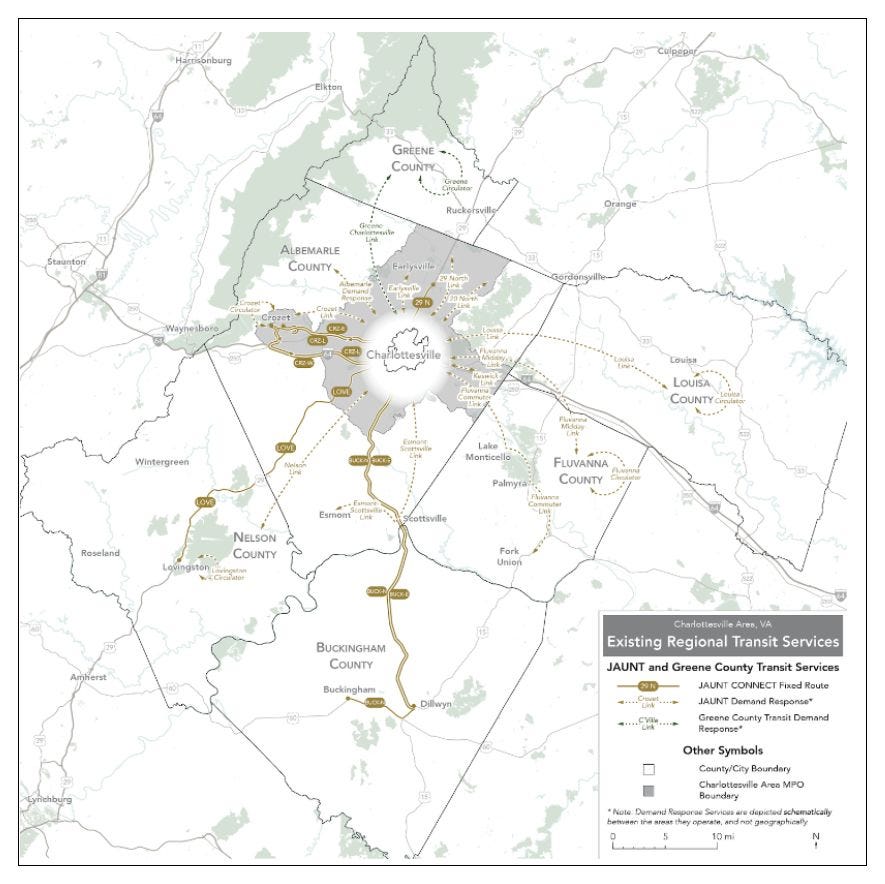
Both visions expand the number of areas covered by on-demand service where people can call for service on the same day. Currently, a ride on Jaunt has to be booked a day in advance. But in general, the plan without identified funding would increase service.
The unconstrained vision would seek to increase fixed-route service to seven days a week from morning into the evening.
“One of the key things that is likely to significantly improve access to opportunity, particularly for people who work in retail, service, and hospital jobs where many people have to work evenings and many people have to work Sundays,” Wagg said. “Those types of jobs where if you aren’t there for them on Sunday, they have to have a car and therefore have to incur the high costs of owning a car.”
Supervisor Ann Mallek is the sole elected official left from an effort in the late 2000’s to create a regional transit authority. She wanted to make clear the community tried once before for a sales tax to fund increased transit, but a referendum did not make it out of the General Assembly.
“Money doesn’t just appear when we don’t have the authority to raise it,” Mallek said.
Supervisor Ned Gallaway said service along urban corridors in his district needs to be frequent to accommodate the new units that have been approved during his tenure, such as the Rio Point project that got the okay last December. He pointed out proponents argued transit could help mitigate traffic congestion.
“Over a thousand units, 1,300, 1,400 units that are going to build out there, and if they’re sitting on a sixty-minute transit line, that’s not going to work,” Gallaway said.
Gallaway said the on-demand transit pilot that Albemarle will begin next year will go a long way to helping determine what the county needs.
Supervisors Bea LaPisto-Kirtley and Diantha McKeel had already seen the presentation because the Jefferson Area Regional Transit Partnership got a briefing in late May. McKeel wanted clarification on the role the University of Virginia Transit System would play in the vision.
“We tend to think about UVA as doing their own thing,” McKeel said. “That’s what they’ve done for years with their students and faculty and staff. Having said that, I know they are working really hard with us at the regional transit partnership about coming together on transit in this community.”
Wagg said that the unconstrained vision anticipates more involvement by UVA.
“There is an obvious and enormous transit demand within and around a university and the Grounds at UVA needs really a high frequency service within a pretty limited space so it is understandable they run their own service,” Wagg said.
Wagg said an idea in the unconstrained vision is to trade resources with UVA. For instance, a Bus Rapid Transit system similar to the Pulse in Richmond could travel down U.S. 29 and terminate somewhere on Emmet Street.
“And then the University could run a more community service that serves the Grounds as a primary focus but also serves the community at large,” Wagg said.
Charlottesville City Council had their review on June 6. The presentation was much the same as what Albemarle and the Regional Transit Partnership saw, but Wagg repeated why having to wait on a bus that comes once an hour is an obstacle.
“Relying on service every 60 minutes is extremely hard,” Wagg said. “You can think about relying on a 60 minute route is a little bit like if there was a gate at the end of your driveway that only opened once an hour. You had best be in your car with your coffee ready to go at 7 a.m. if you need to get out at 7 a.m. to get to work. And if you miss it, then you are not leaving until 8 a.m.”
Wagg reminded Council that many of the current CAT routes do not operate on Sunday.
City Councilor Brian Pinkston said the unconstrained vision is compelling and certainly appeared to be more attractive. But he expressed some skepticism.
“This would be a great system to enact but how do we change behavior such that people would use it?” PInkston said.
Wagg said if people have choices about how to get around, they’ll take transit.
“A major reason people don’t take transit today is because it’s very unlikely to be useful to the trip they want to make,” Wagg said.
For instance, Wagg said a trip from Pantops to the Piedmont Virginia Community College would take a very long time with multiple transfers.
“Changing that dynamic of ‘will someone choose to ride’ is making it far more likely that the trip that they look up will be reasonably competitive to take transit,” Wagg said.
Vice Mayor Juandiego Wade said he was concerned that outreach efforts have not been robust.
“I’m just afraid that you may get input from the same people and we kind of know what it is,” Wade said. “We’ve got to do a better job of getting input. I can tell you if this is all you’re going to do, I can assure you of what we’re going to get.”
Extra service will mean extra drivers, and Councilor Michael Payne said their needs must be taken into consideration up front.
“We can drop any plans or changes we want but if we don’t have sufficient drivers to run those routes, it won’t work,” Payne said. “I know we’re already seeing significant problems in being able to maintain frequency of our current routes because of a shortage of bus drivers.”
Payne is another member of the Regional Transit Partnership. He said the unconstrained vision should be a goal, but a realistic approach needs to be taken.
“How do we, once this is finalized, bring it back down to earth and figure out what are the level of investments we need to specifically plan for here in the city and what are the specific steps needed to start to get Jaunt, [Charlottesville Area Transit], and the University Transit Service working together to move to that Regional Transit Authority?” Payne said.
And that’s where the governance study would come in.
If there was to be a regional authority, that could also include surrounding counties. The Greene County Board of Supervisors gets their review of the plan tonight, and its the Fluvanna Board’s turn on Wednesday.
The next step is a virtual meeting on June 23 in which the consultants will present both the constrained and unconstrained visions. There’s also a community survey that seeks to gather input on the unconstrained and constrained visions.
What do you think? No use telling me. Fill out that survey!
Support the show by checking out Ting!
For over a year one year now, Town Crier Productions has had a promotional offering through Ting!
Are you interested in fast internet? Visit this site and enter your address to see if you can get service through Ting. If you decide to proceed to make the switch, you’ll get:
Free installation
Second month of Ting service for free
A $75 gift card to the Downtown Mall
Additionally, Ting will match your Substack subscription to support Town Crier Productions, the company that produces this newsletter and other community offerings.
Your $5 a month subscription yields $5 for TCP.
Your $50 a year subscription yields $50 for TCP
The same goes for a $200 a year subscription!
All goes to cover the costs of getting this newsletter out as often as possible. Learn more here!




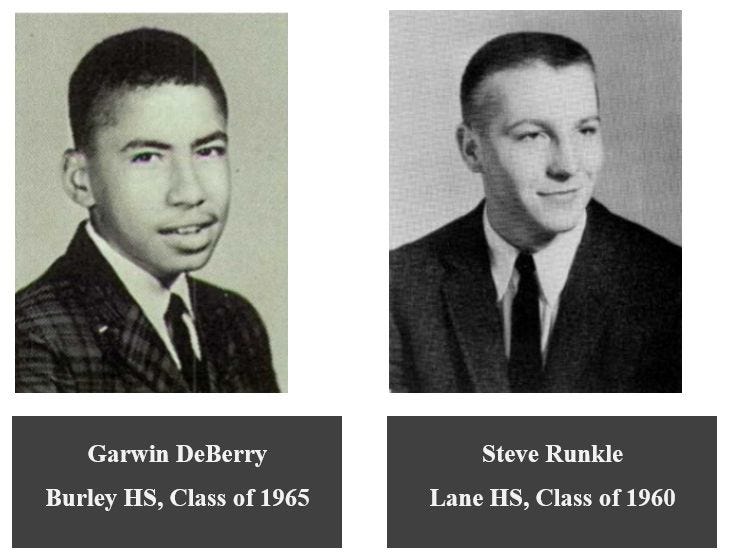
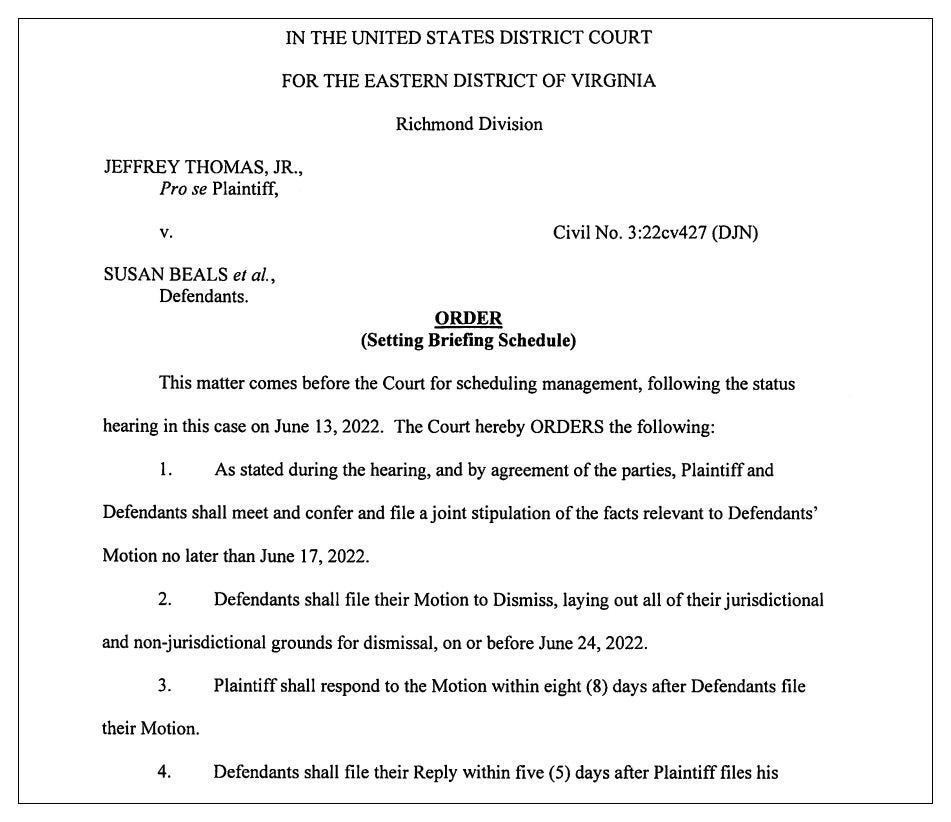








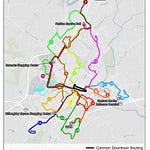
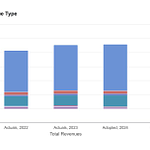

June 14, 2022: Albemarle Supervisors and Charlottesville Council briefed on Regional Transit Vision Plan that imagines expanded service